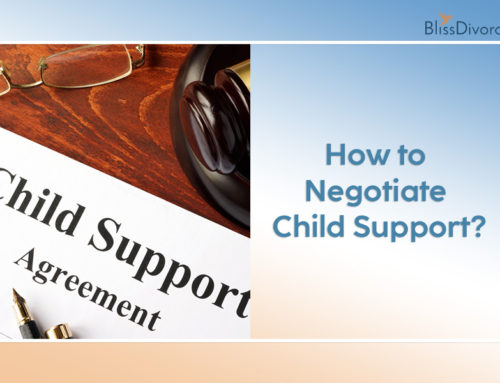There are many emotions we experience while going through a divorce, and some of them can be difficult to understand. Most commonly, we think of feelings such as anger, stress, and anxiety.
Many of these emotions begin to make more sense when we start to think of them, not as individual emotions, but as parts of a larger emotional process: the grieving process. Even though we may recognize the need for a divorce, especially if the divorce is amicable, it is normal to grieve a marriage as it ends.
Here are the stages of that grief as they relate to divorce.

Source: shutterstock.com / Photo Contributor: fizkes
Denial
Are you convinced that everything is fine and that your life won’t change much after the divorce? Denial is your psyche’s way of protecting you from pain while you come to terms with a new normal.
Far from being a negative, this emotional phase of going through a divorce may be a gift. It is the calm before the storm, and during that calm, it will be easier for you to reach an agreement with your spouse, make plans for how your divorce will unfold, and put strategies in place for transitioning from married to single life.
Anger
After the reality of what is happening sets in, it may be a lot harder to move forward. Anger is a normal part of the grieving process, and it is a healthy emotion to feel toward the spouse from whom one is separating. It can, however, be very hard to reach agreements during this phase.
During the anger phase of divorce, you may find yourself rehashing all of the reasons why your marriage was unfulfilling. Ex-bashing may be your new favorite hobby.
Like denial, anger protects your psyche. If you are focused on your ex’s negative qualities, you aren’t asking yourself what you may have done wrong. Anger can feel good, which is quite alluring when the other option is feeling sadness or a sense of loss. Provided that you don’t feel persistently angry for a very long time, this isn’t an unhealthy response.
The best way to navigate this phase is to let anger be your motivator. If your spouse truly is the worst person that ever lived, then you have all the more reason to get through the divorce quickly, even if that means holding your nose and making some compromises. Let the feelings of anger motivate you to seek therapy, or a support group, where you can vent your feelings safely, and maybe learn coping strategies.

Source: shutterstock.com / Photo Contributor: Prostock-studio
Bargaining
As the numbness and anger subside, the reality of what is happening will begin to settle in. Suddenly, you realize that the divorce, itself, is taxing, painful, and frustrating. Even if your married life wasn’t what you wanted, it might seem quite rosy compared to dealing with the divorce process. You may even begin to idealize your spouse.
If you are not the person who decided to divorce, at this point, it may seem tempting to try to pursue your spouse and win them back.
If you are the person who made the decision, you may start to question whether you are making the right decision.
If you have already tried everything to save your marriage, remind yourself of that. If you haven’t, talk about these feelings with your therapist before discussing them with your spouse. It may be that what you want to salvage isn’t your marriage, but your friendship with your ex-to-be.
Use these newfound feelings of positivity toward your spouse to help improve your communication with them, and if the marriage truly cannot be saved, leverage them to help you reach an agreement.
Depression
After the bargaining phase, if the bargaining is unsuccessful, it is normal to feel sadness. You may even feel depressed. This, too, is a part of the grieving and healing process. If these feelings of depression are interfering with your ability to work, socialize, and care for your children, it is important to talk to your therapist.
During this phase, you might be distracted by feelings of sadness. Things might start to fall by the wayside. Having a structure, such as is provided by Bliss, can help you stay on track.

Source: shutterstock.com / Photo Contributor: ShotPrime Studio
Acceptance
There is light at the end of the tunnel!
Once you have fully integrated the reality of divorce, your energy will return, and you’ll be able to move on, full steam ahead!
It doesn’t mean that you won’t still have negative feelings about your marriage, your spouse, or your divorce. However, if you have truly reached acceptance, those feelings will no longer hold you back from enjoying your life to the fullest.
*This article is for informational purposes only and is not intended to provide legal advice. If you require legal advice, please contact a licensed attorney in your local area.




